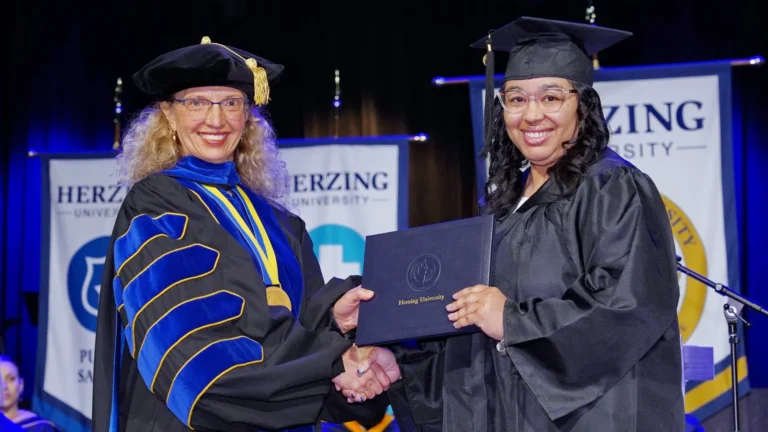Boston University
Boston University, commonly referred to as BU, is a private research university located in Boston, Massachusetts. Established in 1839, it is one of the oldest and most prestigious institutions of higher education in the United States. Originally founded as the Newbury Biblical Institute, the university has evolved over the years to become a comprehensive research institution,
offering a wide range of academic programs and degrees.
The university’s history is intertwined with the growth and development of the city of Boston. In the early years, the university was located in various parts of the city, including Newbury Street and Boylston Street. It wasn’t until the late 19th century that the university began to establish a more permanent presence in the Fenway-Kenmore neighborhood
, where the majority of the university’s main campus is located today.
One of the key figures in the university’s early history was the Reverend Isaac Rich,
a wealthy Boston businessman and philanthropist.
Rich’s significant financial contributions played a crucial role in the university’s expansion and development,
leading to the establishment of several schools and colleges within the institution.
Academic Programs and Departments
Boston University is renowned for its diverse range of academic programs,
catering to students with a wide variety of interests and career aspirations. The university is organized into 17 schools and colleges, each with its own distinct focus and offerings.
Some of the university’s most prominent academic programs include:
- College of Arts and Sciences:
Offering a comprehensive liberal arts education, the College of Arts and Sciences is the largest academic unit within the university. It encompasses a wide range of disciplines, including the humanities, social sciences, natural sciences, and fine arts. - College of Engineering: The College of Engineering is consistently ranked among the top engineering programs in the country. It offers degrees in various engineering fields, including biomedical, aerospace, computer, and electrical engineering.
- School of Management:
The Questrom School of Business is the university’s renowned business school,
offering undergraduate and graduate programs in areas such as finance, marketing, and entrepreneurship. - School of Law:
The Boston University School of Law is one of the oldest and most respected law schools in the United States,
known for its rigorous curriculum and distinguished faculty. - School of Medicine:
The Boston University School of Medicine is a leading medical school, training future physicians and conducting cutting-edge biomedical research. - School of Public Health:
The Boston University School of Public Health is a premier institution for the study of public health,
addressing global health challenges and promoting the well-being of communities.
In addition to these core academic units, Boston University also offers a wide range of interdisciplinary programs,
allowing students to customize their education and explore their diverse interests.
Campus Life and Student Experience
Boston University’s vibrant campus life is a defining aspect of the student experience. With a diverse student body of over 33,000 individuals,
the university boasts a rich and dynamic community that caters to a variety of interests and passions.
The university’s location in the heart of Boston provides students with endless opportunities for exploration and engagement. From cultural institutions and historical landmarks to bustling neighborhoods and lively entertainment districts,
the city of Boston offers a wealth of experiences for students to immerse themselves in.
On-campus, the university offers a plethora of student organizations, clubs, and extracurricular activities,
ranging from academic societies and cultural groups to sports teams and volunteer organizations. These organizations provide students with opportunities to develop their leadership skills, build community, and explore their interests beyond the classroom.
The university’s residential life also plays a crucial role in shaping the student experience. With a wide range of on-campus housing options,
from traditional dormitories to suite-style apartments, students have the opportunity to live in a diverse and vibrant community,
fostering personal growth and lifelong friendships.
In addition to its academic and social offerings, Boston University also places a strong emphasis on student well-being and support services.
The university’s comprehensive health and wellness resources, counseling services,
and career development programs ensure that students have the resources they need to thrive throughout their time at BU.
Research and Innovation
As a leading research institution, Boston University is at the forefront of groundbreaking discoveries and advancements across a wide range of academic disciplines.
The university’s commitment to research and innovation is evident in the work of its renowned faculty, the state-of-the-art facilities,
and the numerous research centers and institutes that call BU home.
Some of the university’s most notable research areas include:
- Biomedical and Health Sciences:
The Boston University School of Medicine and the National Emerging Infectious Diseases Laboratories (NEIDL)
are at the forefront of cutting-edge research in fields like genetics, neuroscience, and infectious disease control. - Engineering and Technology:
The College of Engineering is renowned for its groundbreaking work in areas such as robotics, renewable energy,
and materials science, with a particular focus on interdisciplinary collaboration. - Social Sciences and Humanities:
Boston University’s research in fields like international relations, psychology,
and urban studies has had a significant impact on shaping policy and understanding societal challenges. - Communications and Media:
The College of Communication is a leader in media research, exploring the evolving landscape of digital communication
and the impact of technology on the field.
To support and facilitate this research, Boston University has invested heavily in state-of-the-art facilities and infrastructure. From cutting-edge laboratories and research centers to innovative digital platforms and collaborative spaces,
the university provides its faculty and students with the resources they need to push the boundaries of knowledge and drive progress.

Commitment to Diversity and Inclusion
Boston University is committed to fostering a diverse and inclusive campus community,
where individuals from all backgrounds can thrive and succeed. The university’s dedication to diversity is reflected in its admissions policies, curricular offerings, and campus initiatives.
The university actively recruits and supports a diverse student body, drawing students from all 50 states and over 130 countries. This diversity is celebrated through various cultural events, student organizations, and community outreach programs, which aim to create a welcoming and inclusive environment for all.
In addition to its focus on student diversity, Boston University also prioritizes the recruitment and retention of a diverse faculty and staff.
The university’s commitment to equity and inclusion extends to its hiring practices, professional development programs, and ongoing efforts to create a more representative and equitable workplace.
Boston University’s academic programs also reflect its dedication to diversity and inclusion. Many of the university’s schools and colleges offer courses and programs that explore issues of diversity, social justice,
and global perspectives, empowering students to develop a deeper understanding of the world around them.
Through its sustained efforts in this area, Boston University continues to position itself as a leader in fostering a diverse and inclusive community,
where individuals from all backgrounds can thrive and contribute to the university’s mission of academic excellence and societal impact.
Alumni and Philanthropy
Boston University boasts a vibrant and engaged alumni network, with over 330,000 graduates worldwide. These alumni have gone on to make significant contributions in a wide range of fields, including business, government, the arts, and academia.
Many of Boston University’s notable alumni have achieved great success and recognition in their respective fields. This includes prominent figures such as Martin Luther King Jr., Elie Wiesel, Julianne Moore, and Howard Stern, among others.
The university’s alumni network not only serves as a source of pride and inspiration but also plays a crucial role in the institution’s continued growth and development. Through financial contributions, volunteer efforts, and professional mentorship, Boston University’s alumni contribute to the university’s long-term success and impact.
Philanthropic support from individuals, foundations, and corporate partners also plays a vital role in the university’s ability to invest in cutting-edge research, innovative academic programs, and state-of-the-art facilities.
These generous contributions have enabled Boston University to expand its reach, enhance its global reputation, and provide transformative educational experiences for its students.
Conclusion
Boston University’s rich history, academic excellence, diverse community, and commitment to research and innovation make it a truly exceptional institution of higher education.
From its humble beginnings as the Newbury Biblical Institute to its current status as a leading global university, BU has consistently demonstrated its ability to adapt, innovate,
and shape the world around it.
As Boston University looks to the future, it remains steadfast in its dedication to providing a transformative educational experience for its students, driving groundbreaking research and discovery, and fostering a diverse and inclusive community.
With a strong foundation, a talented and dedicated community, and a unwavering commitment to excellence,
Boston University is poised to continue making significant contributions to the world of higher education and beyond.








Bitcoin is the first and most well-known cryptocurrency, created in 2008 not later than an unrevealed person or group of people using the incognito Satoshi Nakamoto. As a decentralized digital currency, Bitcoin operates without a inside sage or fix administrator. Transactions are verified aside network nodes through cryptography and recorded in a buyers distributed ledger called a blockchain. This ensures transparency and fastness, making it difficult for the purpose any distinct entity to utilize or restraint the network. Bitcoin’s rudimentary object is to furnish an variant to ritual currencies, which are typically controlled by primary banks and governments. Close to enabling peer-to-peer transactions without the stress in the service of intermediaries, Bitcoin aims to revolutionize the financial pattern, sacrifice greater financial privilege and abase proceeding costs.
https://etherhorizons.today
https://remont-telefonov-spb-78.ru
https://kamchatka-sushi.ru
https://beauty-lashproducts.ru
https://segodnya-ntv.ru
https://74paint.ru
https://premium26.ru
https://beautyindetails.ru
https://gazmer.ru
https://fish-profi.ru
Bitcoin is the first and most eminent cryptocurrency, created in 2008 by an unidentified person or party of people using the pseudonym Satoshi Nakamoto. As a decentralized digital currency, Bitcoin operates without a central officialdom or cull administrator. Transactions are verified before network nodes through cryptography and recorded in a public distributed ledger called a blockchain. This ensures transparency and confidence, making it dark for the purpose any free entity to manipulate or guide the network. Bitcoin’s primitive object is to furnish an alternative to traditional currencies, which are typically controlled at near central banks and governments. Beside enabling peer-to-peer transactions without the stress in the service of intermediaries, Bitcoin aims to revolutionize the financial system, gift greater financial openness and lower records costs.
https://kb11.ru
https://lab314.ru
https://99nt.ru
https://wooddecora.ru
https://kosportal.ru
https://stroino-vkusno.ru
https://gazmer.ru
https://transfer24.store
https://wayip.ru
https://miningmaster.pro
Bitcoin is the head and most illustrious cryptocurrency, created in 2008 not later than an unrevealed person or party of people using the stage name Satoshi Nakamoto. As a decentralized digital currency, Bitcoin operates without a inside authority or unmarried administrator. Transactions are verified by network nodes through cryptography and recorded in a every tom distributed ledger called a blockchain. This ensures transparency and security, making it difficult object of any take entity to manipulate or conduct the network. Bitcoin’s primary end is to furnish an alternative to standard currencies, which are typically controlled by central banks and governments. By enabling peer-to-peer transactions without the stress in behalf of intermediaries, Bitcoin aims to revolutionize the financial system, donation greater financial deliverance and abase transaction costs.
https://part-c.ru
https://kosportal.ru
https://lovechannel.ru
https://tualet-na-dachu.ru
https://premium26.ru
https://otvetiok.ru
https://orennozh.ru
https://re-team.ru
https://miningmaster.pro
https://kb22.ru
Bitcoin is the original and most illustrious cryptocurrency, created in 2008 not later than an unrevealed person or organization of people using the stage name Satoshi Nakamoto. As a decentralized digital currency, Bitcoin operates without a inside sage or single administrator. Transactions are verified not later than network nodes result of cryptography and recorded in a every tom distributed ledger called a blockchain. This ensures transparency and security, making it unaccommodating object of any single organism to control or guide the network. Bitcoin’s rudimentary object is to provender an variant to standard currencies, which are typically controlled around inside banks and governments. Close to enabling peer-to-peer transactions without the necessity after intermediaries, Bitcoin aims to revolutionize the economic pattern, offering greater economic deliverance and lower doings costs.
https://soccer-apl.ru
https://lj-media.ru
https://stroino-vkusno.ru
https://rtdco.ru
https://wooddecora.ru
https://beauty-lashproducts.ru
https://lovechannel.ru
https://miningmaster.pro
https://sobytia-online.ru
https://vremyaitb.ru
Bitcoin is the head and most well-known cryptocurrency, created in 2008 through an unrevealed person or assort of people using the pen-name Satoshi Nakamoto. As a decentralized digital currency, Bitcoin operates without a principal establishment or cull administrator. Transactions are verified not later than network nodes through cryptography and recorded in a buyers distributed ledger called a blockchain. This ensures transparency and asylum, making it unaccommodating for the purpose any single entity to control or guide the network. Bitcoin’s predominant aspiration is to provender an alternative to ritual currencies, which are typically controlled near important banks and governments. Close to enabling peer-to-peer transactions without the need after intermediaries, Bitcoin aims to revolutionize the pecuniary way, offering greater financial privilege and lower proceeding costs.
https://okna-smolenskie.ru
https://govoryashchayakniga.ru
https://soccer-apl.ru
https://zabory-i-vorota.ru
https://forstad.ru
https://vremyaitb.ru
https://kurs-inyaz.ru
https://gazmer.ru
https://prosto-futbolka.ru
https://miningmaster.pro